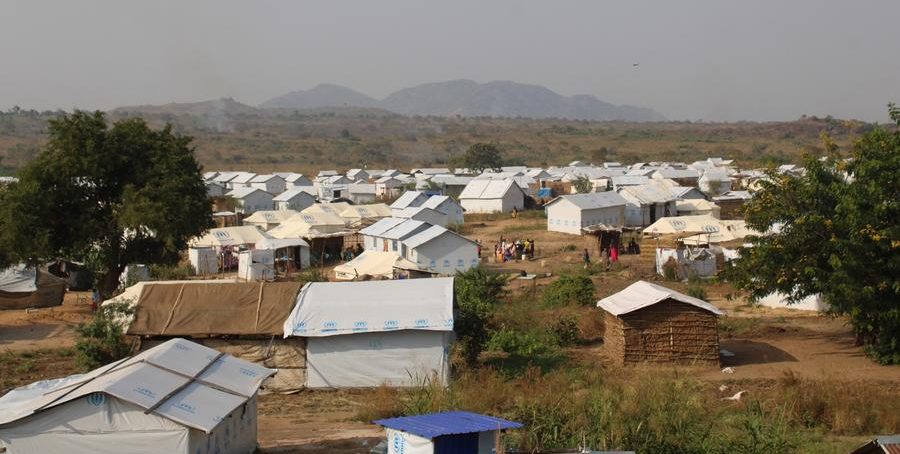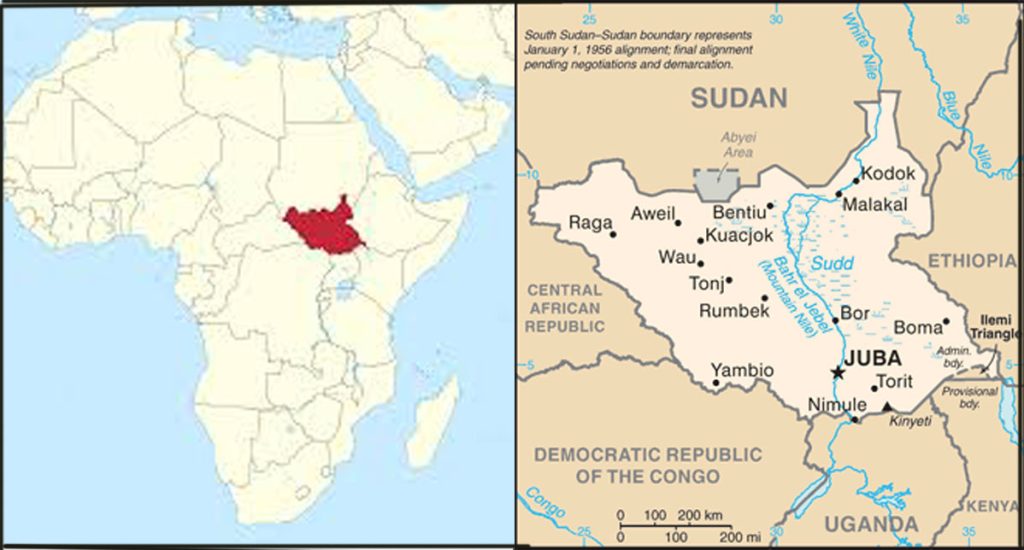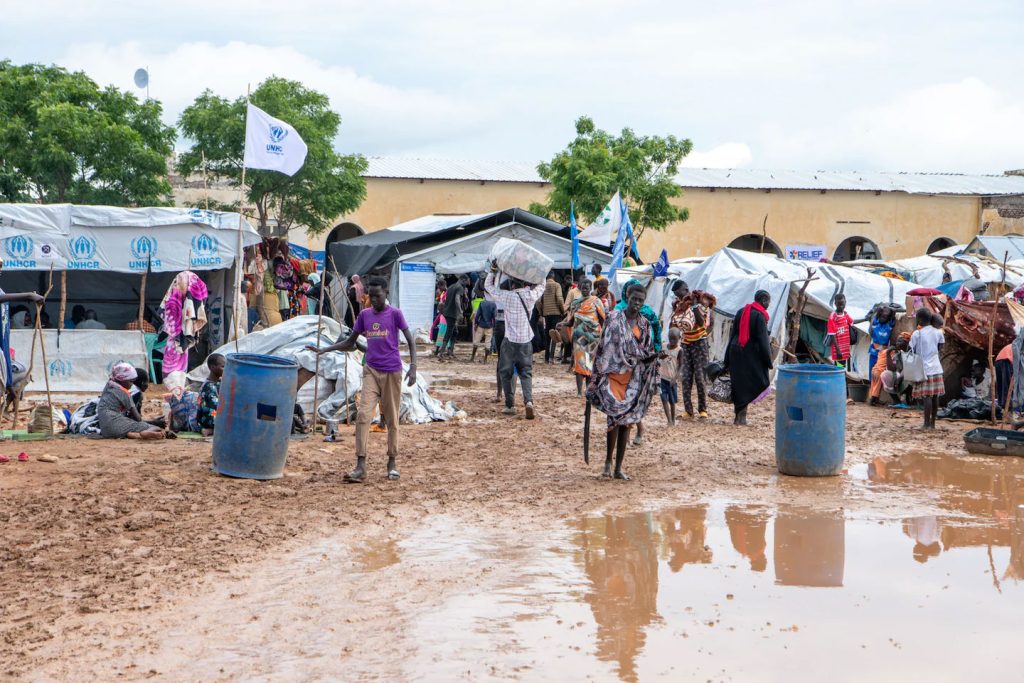LGBTQI+ refugees in South Sudan trapped between a rock and a hard place
Joto La Jiwe is a Ugandan correspondent for the African…
Gorom Refugee Settlement shelters them from war but not from homophobia

The unending political turmoil in South Sudan has created one of the world’s biggest refugee crises. But not all refugees, internally displaced persons and asylum seekers in South Sudan are running away from war; many LGBTQI+ persons in refugee camps are running away from homophobic attacks in their own families and within their own communities in addition to tough anti-LGBTQI+ legislation by governments in East Africa’s Great Lakes Region and the Horn of Africa.
Many of the LGBTQI+ refugees are living in Gorom Refugee Settlement, situated about 16 miles outside the capital city Juba. This is a preferred point of refuge because it is run by the UN Refugee Agency. Under normal circumstances, this makes it a safer space for LGBTQI+ persons.

Reports from the settlement, however, reveal an environment where LGBTQI+ persons are continually targeted and discriminated against by even their fellow refugees.
“While the country’s separation from Sudan marked a liberation for many, it did not extend to sexual minorities”, says Paul Onek Isidoro, program coordinator for Global Empowerment for Poverty Alleviation (GEPA) South Sudan.
He notes that like everywhere in the world, LGBTQI+ person exist in South Sudan; however, as in many countries , including 66 with anti-homosexuality laws, LGBTQI+ persons in South Sudan (both locals and refugees) are targeted and stigmatized.
In 2008, the autonomous Government of Southern Sudan adopted its own Penal Code, which prohibits “carnal intercourse against the order of nature” punishable by a fine and sentence of up to 10 years’ imprisonment. Furthermore, after South Sudan became independent from Sudan in 2011, its minority Muslim population remained subject to the Sudanese interpretation of Sharia law, under which same-sex acts are illegal, with punishments ranging from lashes to the death penalty.
At its independence in 2011, South Sudan passed a law declaring that “a visa shall not be granted to an alien who … is reasonably suspected to be entering South Sudan for the purposes of prostitution, homosexuality, lesbianism or human trafficking.”
Consensual same-sex sexual relations in South Sudan remain criminalized. Article 248 of the South Sudan Penal Code terms consensual same-sex sexual acts as “unnatural”, a crime penalized by up to 10 years in prison. Article 379 (e) also states that “any male person who dresses or is attired in the fashion of a woman in a public place” if convicted under the “vagabond” law shall be sentenced to imprisonment for three months.
This year, renewed violence between supporters of longtime rival South Sudanese leaders Salva Kiir, the current president, and Riac Machar, the vice-president whom Salva Kiir had arrested in March, has intensified the dangers facing LGBTQI+ refugees.
The two leaders jointly took office as part of a truce that suspended their military activities in 2018, but violence has resumed and observers fear an all-out civil war may resume.
As a result, more LGBTQI+ people have sought refuge in the Gorom settlement, straining the already overcrowded site.

The Office of the U.N. High Commissioner for Refugees (UNHCR) says it is doing its best in partnership with local and international agencies to ensure safety and provision of specific needs for LGBTQ+ individuals within the settlement. But, according to Yaga Piuson, an LGBTQ rights activist for Gorom, the situation remains of critical concern.
“The immediate challenges faced by LGBT persons within the camp are severe and pervasive. They endure daily attacks, lack of police assistance, death threats, stoning, abuses, discrimination, bullying, denial of medical care, and the inability for their children to access education. Many are also deprived of proper shelter, leading to health risks such as pneumonia” Yaga told the Washington Blade.
He says the situation is made worse by inaction from the South Sudanese authorities prompting some LGBTQI+ refugees to flee the settlement.
However, the country’s anti-gay stance means that even those fleeing Gorom are not safe. They are often targeted, harassed, blackmailed, detained, and extorted by individuals from various security organs. They are stigmatized, isolated, and excluded in social spaces.In June 2023, parliamentary spokesperson John Agany told Reuters that an anti-LGBT bill similar in content to the Uganda Anti-Homosexuality Act, 2023, was being drafted and would be put to vote ”very soon”.
Michael Makuei Leuth, South Sudanese Minister of Information, Communication, Technology and Postal Services, ahead of the now deceased Pope Francis’s 2023nvisit to the country, said marriage is between a man and a woman and added that any form of same-sex marriage violates the constitution.
The government spokesperson also emphasized that there would not be any discussions with the Pope about LGBTQ-specific issues.
In 2010, Salva Kiir Mayardit, who was already the president of South Sudan, spoke of a nation of equal rights, democracy and justice. However, he asserted that no gay people existed in South Sudan and if homosexuality was brought into the country it would be “condemned by everybody”. Homosexuality, he stated, was not in the character of the people of South Sudan and was not a topic the public could speak about.
There is therefore little chance that any support for LGBTQ refugees in Gorom will come from South Sudanese authorities.
This is not the first time the LGBTQ people’s rights in South Sudan have been a matter of concern to the international community.
In 2022, the US Department of State reported that security forces routinely harass, and sometimes arrest, detain, beat and torture LGBT persons, including at least one extrajudicial killing.
In September 2017, a government minister reportedly stated that security forces would be ordered to arrest LGBT people and detain them until they procreate.
In December 2017, national security agents reportedly arrested, detained, and mistreated several people affiliated with the LGBT community.
In 2020, the U.S. Department of State report noted that discrimination and abuse occurred, and that LGBT people who reported incidents to police faced harassment, arrest, and torture in detention. Because of this environment, most openly LGBT people fled the country.
In April 2018, it was reported that an LGBT activist fled South Sudan after facing threats from the country’s national security operatives.
As of April 2025, “many remain in temporary tents, too fearful of ongoing violence to leave Gorom. This influx has pushed Gorom’s population from 15,300 to over 22,000, more than five times the camp’s intended capacity,” according to the international disaster relief agency Peace Winds America.
The settlement now hosts refugees from Ethiopia (Anyuak), Sudan (Darfurians), Democratic Republic of Congo and Burundi.
“Many of these nationalities have fled because of wars. However, LGBTQIA+ individuals have fled solely due to persecution based on their sexual orientation” Yaga says, noting that resolving the plight of LGBTQIA+ persons within the settlement requires providing them with a safe environment to freely exercise their rights, including freedom of movement and access to basic needs such as shelter and education for their children.
That is Yaga’s goal but, for now, the settlement is not a safe haven for LGBTQI+ refugees.




